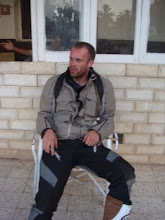Three things make this election so important. First, the presidency is likely to go to a man who will wish to change the constitution to his own ends. And we should be concerned about those ends. It was perhaps inevitable that Mbeki would look like a man in an oversized suit, dressed up and playing pretend, after following Mandela. But what a greater decline is marked by the election of Jacob Zuma. Leave aside his rough ways, his polygamy, and his demagoguery. He is a deeply corrupted man. He may be given to the most unhealthy impulses politically. And he has a past that he has not completely squared against the account of history. It likely includes ordering the torture and summary execution of comrades when he was head of the intelligence for the ANC. This is Guantanamo stuff and more. It should disqualify any man from leadership of a great and democratic nation.
The point should be belaboured. Here, in an article from The Times are some of the things which the Motsuenyane Commission claimed occurred under Zuma's watch.
Detainees were made to crawl through colonies of red ants with pig fat rubbed into their skin. A prisoner had his lips burned by cigarettes and his testicles squeezed with pliers; a detainee was buried up to his neck before being suffocated with a plastic bag; a woman had a guard masturbate over her because she refused to have sex with security officials. A trainee tried to commit suicide after his girlfriend was “taken away”. People were locked up in goods containers, in suffocating conditions. And people simply disappeared.
This election is important because it risks putting the constitution into the hands of a man responsible for such acts. Good democrats and liberals everywhere should hope that his party falls short of a two-thirds majority.
Second, the election is important because it marks the official arrival of COPE, a breakaway party from the ANC, and the confirmation of the Democratic Alliance as the largest opposition grouping in the country. The future of democratic politics in South Africa likely lies in a union between these two parties; between the moderate instincts of COPE and the principled and liberal positions of the DA. Such a coalition would also signal the triumph of non-racialized politics over the crude and unfortunately all-too-familiar chauvinism of the ANC under Zuma.
Third, the DA has won the Western Cape outright and will be able to govern without coalition partners. This is a beauty of federalism: an opposition party will have a jurisdiction in which to prove itself worthy of government. South Africa needs an effective opposition, so we should all hope that Helen Zille, the head of the DA and likely the next premier of the Western Cape, is able to govern effectively.
